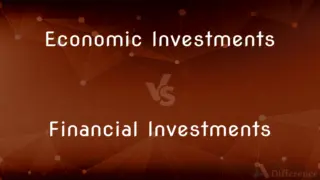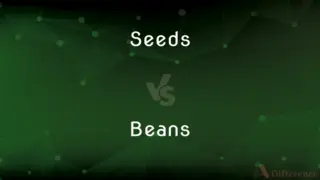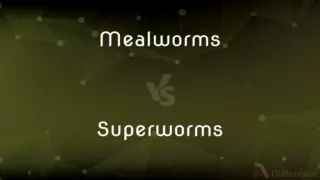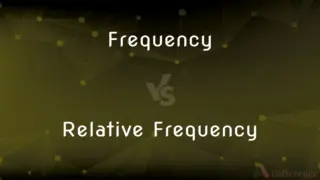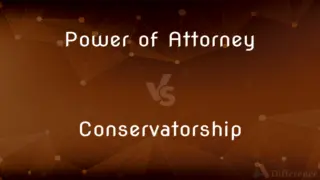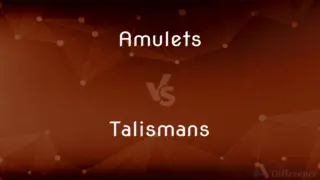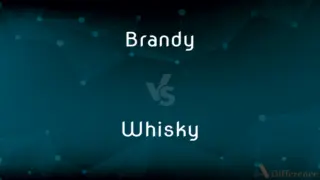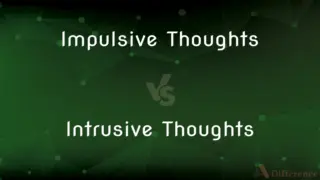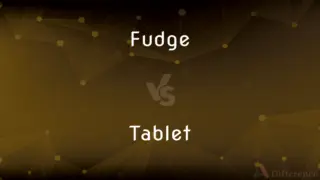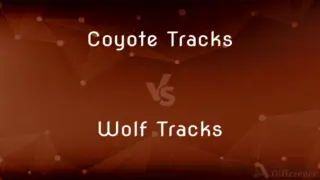Fiction vs. Fake — What's the Difference?
By Fiza Rafique & Urooj Arif — Updated on April 16, 2024
Fiction refers to literature created from imagination, whereas fake denotes something intentionally deceptive or counterfeit.

Difference Between Fiction and Fake
Table of Contents
ADVERTISEMENT
Key Differences
Fiction encompasses works of literature, such as novels, stories, and dramas, that are crafted from the imagination and not presented as fact. On the other hand, fake pertains to objects, information, or documents deliberately fabricated to mislead or deceive others into believing they are genuine.
Fiction is a recognized and respected form of artistic expression, designed to entertain, educate, or provoke thought through fabricated narratives. Conversely, fake items or information are created with the intent of deception, often to gain advantage or harm someone else.
In fiction, audiences are aware that the content is invented and do not expect it to uphold factual accuracy or reality. In contrast, fake items are presented as real and true, exploiting the trust of the recipient for various purposes, such as fraud or misinformation.
The purpose of fiction is often to explore human experiences, emotions, and responses to different situations through imaginative scenarios. Whereas the purpose of producing something fake is to conceal, manipulate, or distort the truth, usually for personal or financial gain.
While fiction is a fundamental part of cultural and educational fields, enriching societies through storytelling, fake objects or information tend to undermine trust, spread confusion, and can lead to significant real-world consequences.
ADVERTISEMENT
Comparison Chart
Nature
Imaginative and creative
Deceptive and misleading
Purpose
To entertain, teach, or provoke thought
To deceive or manipulate
Audience Awareness
Audience is aware it's not real
Intended to be mistaken for real
Impact on Society
Cultural enrichment and education
Erosion of trust, potential harm
Ethical Perception
Accepted and often celebrated
Generally condemned
Compare with Definitions
Fiction
Fiction refers to literature and other forms of media created from the imagination.
She enjoyed reading fiction because it allowed her to escape reality.
Fake
Fake refers to something that is intentionally fraudulent or counterfeit.
The document was fake, designed to mislead the investors.
Fiction
Fiction is not restricted by factual accuracy, focusing instead on storytelling.
The fiction novel featured a talking dog as its main character.
Fake
Fake news is information that is false and meant to deceive.
The article was identified as fake news because it contained fabricated facts.
Fiction
Fiction genres include fantasy, science fiction, and mystery.
He preferred science fiction for its futuristic themes.
Fake
Fake products are often cheaper imitations of original brands.
The fake handbag was sold at a fraction of the price of the real one.
Fiction
Fiction serves to explore possible realities and human conditions.
The fiction series dealt with complex themes of love and betrayal.
Fake
Fake identities can be used for fraudulent purposes.
He created a fake profile to scam others online.
Fiction
Fiction can offer insights into different cultures and perspectives.
Her fiction book provided a deep dive into ancient Egyptian society.
Fake
Fake items are created to closely mimic or replicate the genuine article.
The fake painting was almost indistinguishable from the original.
Fiction
Fiction is any creative work (chiefly, any narrative work) consisting of people, events, or places that are imaginary—in other words, not based strictly on history or fact. In its most narrow usage, fiction refers to written narratives in prose and often specifically novels, though also novellas and short stories.
Fake
Not genuine; imitation or counterfeit
She got on the plane with a fake passport
A fake Cockney accent
Fiction
Literature in the form of prose, especially novels, that describes imaginary events and people.
Fake
A thing that is not genuine; a forgery or sham
Fakes of Old Masters
Fiction
Something that is invented or untrue
They were supposed to be keeping up the fiction that they were happily married
Fake
Variant spelling of flake
Fiction
The category of literature, drama, film, or other creative work whose content is imagined and is not necessarily based on fact.
Fake
Forge or counterfeit (something)
She faked her spouse's signature
Fiction
Works in this category
The fiction of Virginia Woolf.
Fake
Variant spelling of flake
Fiction
A work within this category
The shorter fictions of Faulkner.
Fake
Having a false or misleading appearance; fraudulent.
Fiction
Narrative, explanatory material, or belief that is not true or has been imagined or fabricated
The notion that he was at the scene of the crime is pure fiction.
Fake
One that is not authentic or genuine; a sham.
Fiction
A narrative, explanation, or belief that may seem true but is false or fabricated
"Neutrality is a fiction in an unneutral world" (Howard Zinn).
Fake
(Sports) A brief feint or aborted change of direction intended to mislead one's opponent or the opposing team.
Fiction
(Law) A verbal contrivance that is in some sense inaccurate but that accomplishes a purpose, as in the treatment of husband and wife as one person or a corporation as an entity.
Fake
One loop or winding of a coiled rope or cable.
Fiction
(literature) Literary type using invented or imaginative writing, instead of real facts, usually written as prose.
I am a great reader of fiction.
The fiction section of the library
Fake
To contrive and present as genuine; counterfeit
Fake a signature.
Fiction
A verbal or written account that is not based on actual events (often intended to mislead).
The company’s accounts contained a number of blatant fictions.
The butler’s account of the crime was pure fiction.
Separate the fact from the fiction
Fake
To simulate; feign
Faked his death so his wife would collect insurance money.
Fiction
(legal) A legal fiction.
Fake
(Music) To improvise (a passage).
Fiction
The act of feigning, inventing, or imagining; as, by a mere fiction of the mind.
Fake
(Sports) To deceive (an opponent) with a fake. Often used with out.
Fiction
That which is feigned, invented, or imagined; especially, a feigned or invented story, whether oral or written. Hence: A story told in order to deceive; a fabrication; - opposed to fact, or reality.
The fiction of those golden apples kept by a dragon.
When it could no longer be denied that her flight had been voluntary, numerous fictions were invented to account for it.
Fake
To engage in feigning, simulation, or other deceptive activity.
Fiction
Fictitious literature; comprehensively, all works of imagination; specifically, novels and romances.
The office of fiction as a vehicle of instruction and moral elevation has been recognized by most if not all great educators.
Fake
(Sports) To perform a fake.
Fiction
An assumption of a possible thing as a fact, irrespective of the question of its truth.
Fake
To coil (a rope or cable).
Fiction
Any like assumption made for convenience, as for passing more rapidly over what is not disputed, and arriving at points really at issue.
Fake
Not real; false, fraudulent
Which fur coat looks fake?
Fiction
A literary work based on the imagination and not necessarily on fact
Fake
(of people) Insincere
Fiction
A deliberately false or improbable account
Fake
Something which is not genuine, or is presented fraudulently.
I suspect this passport is a fake.
Fake
(sports) A move meant to deceive an opposing player, used for gaining advantage for example when dribbling an opponent.
Fake
(archaic) A trick; a swindle
Fake
(nautical) One of the circles or windings of a cable or hawser, as it lies in a coil; a single turn or coil.
Fake
(transitive) To make a counterfeit, to counterfeit, to forge, to falsify.
Fake
(transitive) To make a false display of, to affect, to feign, to simulate.
To fake a marriage
To fake happiness
To fake a smile
Fake
(archaic) To cheat; to swindle; to steal; to rob.
Fake
(archaic) To modify fraudulently, so as to make an object appear better or other than it really is
Fake
To improvise, in jazz.
Fake
(nautical) To coil (a rope, line, or hawser), by winding alternately in opposite directions, in layers usually of zigzag or figure of eight form, to prevent twisting when running out.
Fake
One of the circles or windings of a cable or hawser, as it lies in a coil; a single turn or coil.
Fake
A trick; a swindle.
Fake
To coil (a rope, line, or hawser), by winding alternately in opposite directions, in layers usually of zigzag or figure of eight form,, to prevent twisting when running out.
Fake
To cheat; to swindle; to steal; to rob.
Fake
To make; to construct; to do.
Fake
To manipulate fraudulently, so as to make an object appear better or other than it really is; as, to fake a bulldog, by burning his upper lip and thus artificially shortening it.
Fake
Something that is a counterfeit; not what it seems to be
Fake
A person who makes deceitful pretenses
Fake
(football) a deceptive move made by a football player
Fake
Make a copy of with the intent to deceive;
He faked the signature
They counterfeited dollar bills
She forged a Green Card
Fake
Fake or falsify;
Fudge the figures
Cook the books
Falsify the data
Fake
Talk through one's hat;
The politician was not well prepared for the debate and faked it
Fake
Fraudulent; having a misleading appearance
Fake
Not genuine or real; being an imitation of the genuine article;
It isn't fake anything; it's real synthetic fur
Faux pearls
False teeth
Decorated with imitation palm leaves
A purse of simulated alligator hide
Common Curiosities
How can one identify a fake item or information?
Fake items or information can often be identified by inconsistencies, lack of credible sources, or comparison with authentic materials.
Is all fiction purely imaginary?
While fiction is based on imagination, it can include elements inspired by real events or experiences, but these are not presented as fact.
What are common motives behind creating fake items?
Common motives include financial gain, influence, or causing harm through deception.
What defines a work as fiction?
A work is defined as fiction if it is created from the imagination and not presented as factual.
How do societal perceptions of fiction and fake differ?
Society generally values fiction for its cultural and educational contributions, whereas fake items are condemned for their deceptive nature.
How do creators justify the creation of fake items?
Creators of fake items might justify their actions by financial necessity or lack of awareness of the consequences.
Why is fake news considered dangerous?
Fake news can lead to misinformed decisions, polarize societies, and undermine democratic processes.
Can the impact of fiction extend beyond entertainment?
Yes, fiction can profoundly influence beliefs, inspire change, and foster empathy.
Can fiction be harmful?
While fiction is generally benign, it can sometimes perpetuate stereotypes or misinformation if not critically engaged with.
How does the intention differ between creating fiction and something fake?
The intention behind fiction is creative expression, whereas the intent behind fake items is to deceive.
What role does the audience's perception play in fiction and fake?
Audience perception is crucial; fiction is enjoyed with a willing suspension of disbelief, while fake items are intended to deceive.
What legal repercussions exist for spreading fake information?
Legal repercussions can include fines, imprisonment, or other penalties, depending on the severity and impact of the misinformation.
What measures can be taken to reduce the impact of fake items?
Measures include education on media literacy, stricter regulations, and public awareness campaigns about the dangers of fake items.
Are there ethical ways to use fictional elements in non-fiction work?
Yes, using fictional techniques like narrative storytelling can enhance non-fiction work, provided it is clearly indicated and does not mislead.
Is creating fake art as respected as fiction writing?
No, creating fake art is generally considered unethical and is not respected like fiction writing.
Share Your Discovery

Previous Comparison
Riverbank vs. Shore
Next Comparison
Cow vs. YakAuthor Spotlight
Written by
Fiza RafiqueFiza Rafique is a skilled content writer at AskDifference.com, where she meticulously refines and enhances written pieces. Drawing from her vast editorial expertise, Fiza ensures clarity, accuracy, and precision in every article. Passionate about language, she continually seeks to elevate the quality of content for readers worldwide.
Co-written by
Urooj ArifUrooj is a skilled content writer at Ask Difference, known for her exceptional ability to simplify complex topics into engaging and informative content. With a passion for research and a flair for clear, concise writing, she consistently delivers articles that resonate with our diverse audience.














